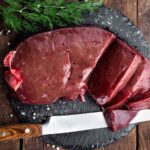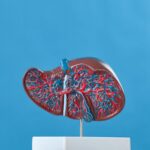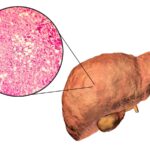Pancreatitis is a serious condition that can affect any dog, regardless of age or breed. Improper nutrition and other risk factors can lead to painful symptoms that threaten your pet’s health. What are the symptoms of this condition, how is it treated and what can be done to ensure that a dog’s diet supports pancreatic health?
What is pancreatitis in dogs?
Pancreatitis in dogs is a condition in which the digestive enzymes produced by the pancreas do not function properly. Under normal conditions, these enzymes are secreted in an inactive form and only become active in the intestines, where they aid digestion. In inflammation, this process is disrupted – the enzymes begin to act inside the pancreas, leading to self-digestion of the organ’s tissue. This causes local inflammation, which can spread to other organs and, in severe cases, lead to multiple organ failure. The disease can be acute, with a sudden and severe onset, or chronic, with recurrent episodes of inflammation.
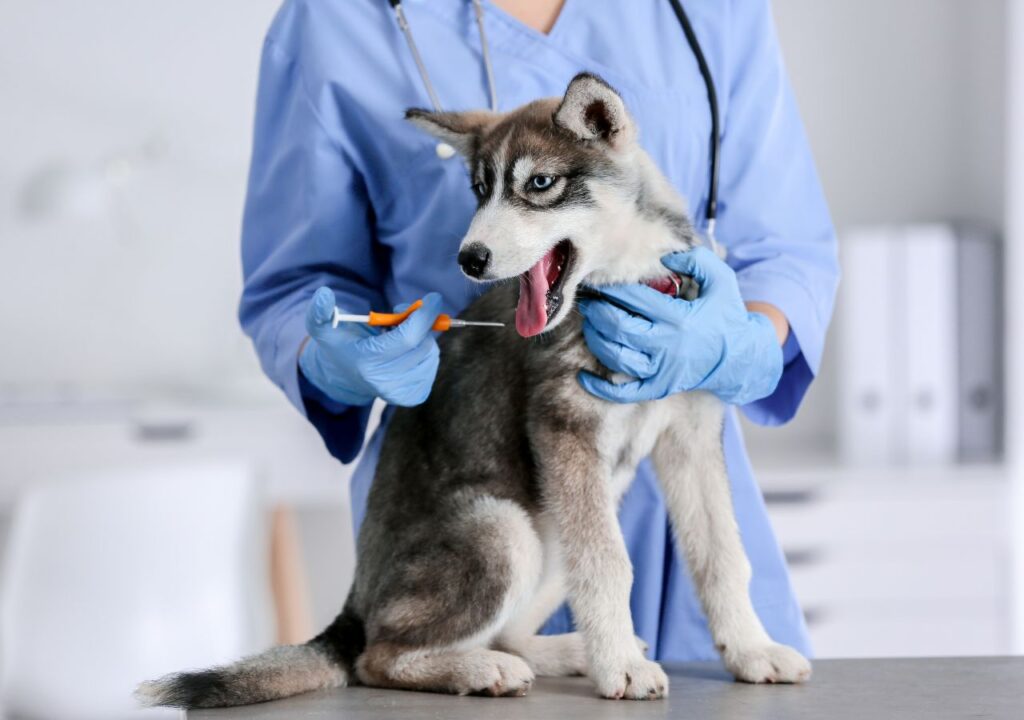
Sick pancreas in a dog – symptoms
Diagnosing pancreatitis in a dog can be challenging as the symptoms are often non-specific and can mimic other gastrointestinal conditions. However, there are some characteristic signs that may indicate pancreatic problems:
Vomiting
Frequent and persistent vomiting is one of the most common symptoms of pancreatitis. A dog may vomit even after a small meal, indicating digestive problems.
Diarrhoea or fatty stools
A dog’s stools may become loose, greasy and sometimes grey or white as a result of fat digestion problems. Chronic diarrhoea is a particularly worrying sign.
Loss of appetite
A dog with pancreatitis often loses its appetite, avoids eating, and even loses interest in its favourite treats.
Abdominal pain
Although dogs can’t talk, they will show signs of discomfort. You may notice that the dog is lethargic, avoids touching the abdomen and adopts unusual positions such as squatting or stretching to relieve the pain. You can read more about pain positions in the article “Signs of pain in a dog – what you need to know”.
Weakness and apathy
Chronic inflammation causes a general weakening of the body and the dog becomes less active, sleepy and avoids playing or walking.
Dehydration
The dog can quickly become dehydrated due to frequent vomiting and diarrhoea. Dry gums, sunken eyes and lack of skin elasticity are signs of dehydration that require immediate attention.
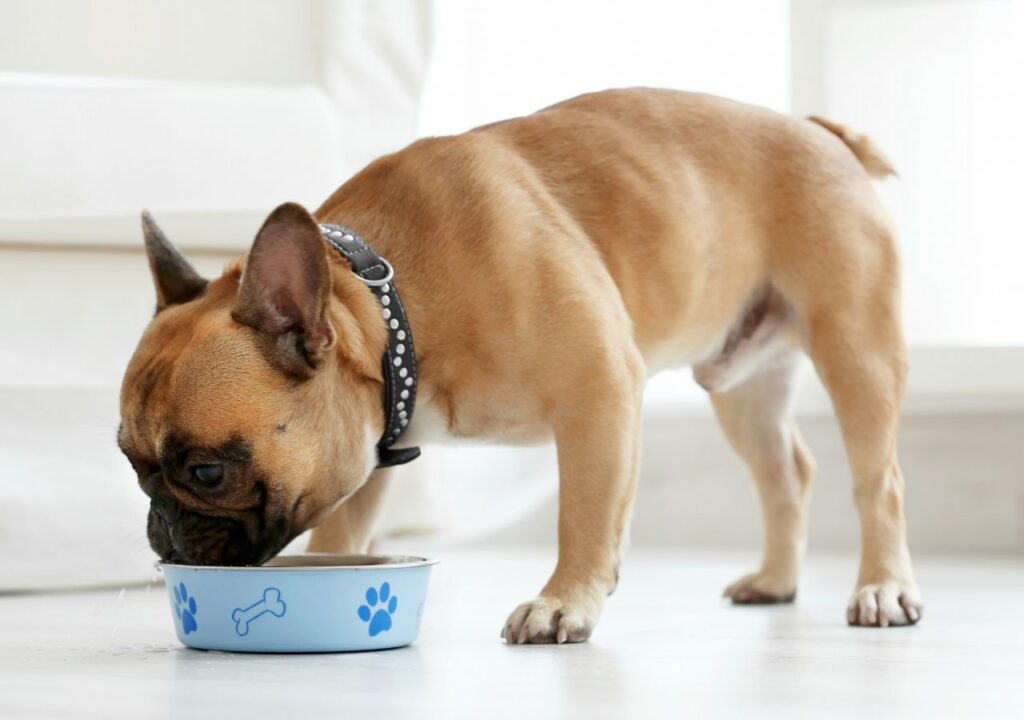
Pancreatic diseases in the dog – What are the causes?
A dog’s pancreatitis can be caused by a variety of factors, and it is often the result of a combination of factors. It is useful to know the main causes and risk factors so that you can take proper care of your dog’s health.
What can cause pancreatitis in dogs?
A high-fat diet
An excess of fatty foods can overload the pancreas and lead to pancreatitis, especially if your dog is suddenly given a high-fat meal.
Obesity
Being overweight or obese increases the risk of the condition because the pancreas has to work harder to process fats.
Genetics and breed
Some breeds, such as miniature schnauzers and dachshunds, are more susceptible to pancreatitis.
Comorbidities
Medical conditions such as diabetes, hypothyroidism or Cushing’s disease can affect pancreatic function.
Medications
Long-term use of certain medications, such as steroids, can affect the pancreas.
Abdominal trauma
Physical trauma to the abdomen can damage the pancreas.
Risk factors to look out for
Older age
Older dogs are more susceptible to pancreatic disease as the organ becomes less effective with age.
Irregular eating
Long gaps between meals or sudden changes in diet can put a dog’s digestive system under stress, increasing the risk of pancreatitis.
Stress and over-exercise
Stress and over-exercise after a meal can cause digestive upset, which can affect the pancreas.

The role of diet in treatment – What is the best food for a dog with pancreatitis?
Diet plays a key role in the management of pancreatic disease in dogs. Adequate nutrition not only promotes regeneration of the pancreas, but also minimises the risk of further episodes of the disease. A proper diet should be primarily low-fat or moderate-fat and tailored to the individual dog’s needs based on test results and veterinary recommendations. Proper nutrition helps to significantly reduce the load on the pancreas, allowing it to regenerate efficiently and preventing excessive stress on the organ. In practice, the best diet for a dog with pancreatic disease is a cooked diet. You can read more about this in the article ,,Homemade dog food – what to cook for your dog?”.
Why is a low-fat diet important?
Fats are difficult to digest and an excess of them forces the pancreas to produce more digestive enzymes. This greatly increases the risk of pancreatic damage and worsens the symptoms of inflammation. This is why a low-fat diet is so important during acute pancreatitis – it reduces the load on the pancreas and allows it to work more quietly. However, it is important to note that the amount of fat in the diet should be adjusted individually, depending on the dog’s condition and test results. For example, in the case of chronic pancreatitis, we do not limit fat as much as possible, as this can lead to vitamin deficiencies in the long term.
Why should dry food be avoided in dogs with pancreatitis?
While dry food is convenient, it is not the best option for dogs with pancreatitis. It tends to be high in carbohydrates, which can also stress the pancreas, forcing digestive enzymes to work harder. Excess carbohydrates, like fats, can contribute to worsening the condition. This is why a cooked diet is a better option for a dog with pancreatic disease, as the amount of fat and carbohydrate can be precisely controlled and the ingredients can be tailored to the dog’s needs.
Bowel problems and allergies
Many dogs with pancreatitis also have intestinal problems, which may be allergic in origin. In such cases, the diet should not only be low in fat, but also hypoallergenic. Avoiding potential food allergens, such as certain animal proteins or grains, can help both heal the pancreas and improve the overall condition of the digestive system.


